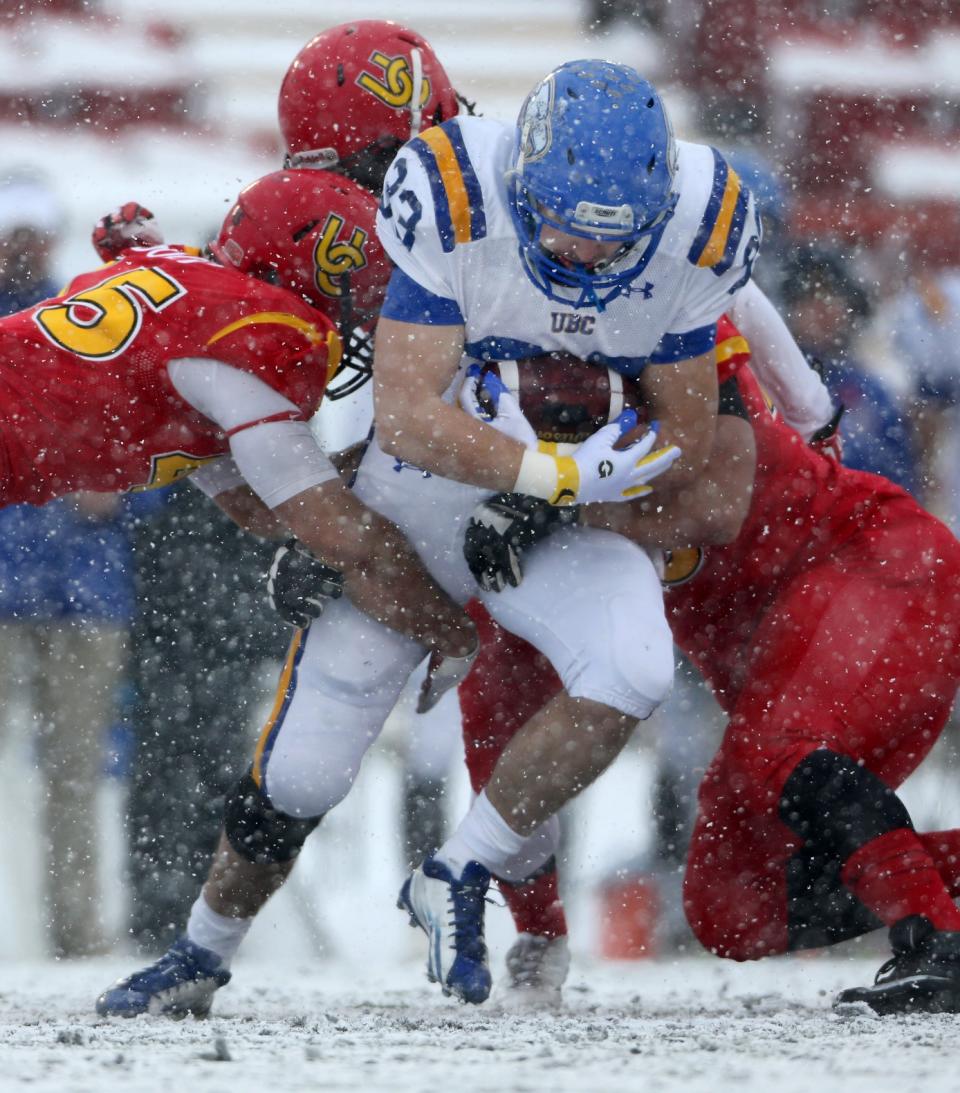UBC review silences hysteria, while football, basketball among 16 to maintain varsity status
The University of British Columbia has taken a lot of heat for its core review of athletic programs. But, as stated by upper management, they were on "an unsustainable path" and a review of their operations was required.
The immediate reaction to the word "review" conjured up concern and hysteria from many. For many, the unnecessary panic was put to rest.
Hopefully now, the mudslinging can stop. And maybe all those people who weighed in with their opinion can actually go out and attend a varsity sporting event. The number of those responding and weighing in on this process surely trumps those actually going to varsity games these days in Vancouver and the surrounding area.
When Athletic Director Ashley Howard came on as athletic director to shepherd the Thunderbirds program through the review process, she was immediately met with accusations that she'd be hard on tradition and that it would mean a threat to the established programs, including football.
She took cheapshots from media, alumni and the external community, with accusations that she was looking to support her preference to ultimate frisbee (she's a former competitor in the sport) and that wellness would trump competitiveness in importance.
Perhaps yesterday's news will silence the critics, as 16 Thunderbirds' teams secured their varsity status, meeting criteria set out by the review panel. These teams are not only safe but they will receive even more funding as a byproduct of the review process.
Beginning in April, UBC will direct an additional $800,000 to varsity athletics and the Department of Athletics and Recreation as a whole, $300,000 of which is being earmarked toward the Millennium Scholarship Breakfast announced last November and $200,000 going directly to varsity programs.
Teams that are safe include men's and women's basketball, women's field hockey, men's football, women's ice hockey, men's rugby, men's soccer, women's volleyball, men's and women's track and field and cross-country, men's and women's rowing, and men's and women's swimming.
"These 16 teams balance men's and women's as well as individual and team sports," Howard said. "The review showed us their strengths but also provides us with a roadmap to needed improvements."
Yet for 13 teams the future is still uncertain, and this number doesn't include some teams with competitive club status looking to move up the ranks to funded varsity programs. Undoubtedly there will be some disappointment when results for this stage are announced in February. But already more positive than negative has come out of this review process.
Notably on this list is men's ice hockey , a program that has struggled throughout its history, winning just two playoff series in over 40 years, both golf teams, women's soccer and both the men's baseball and volleyball programs.
But UBC has done a fair and thorough job to date. Howard, in fact, has done very well in leading an established program - arguably one of the best in Canada - out of the shadows of their decision not to move to the NCAA and into a required and courageous - perhaps cathartic - review of its athletic programs.
Like Carleton University in the late 90s, the University of Ottawa in the early 2000s, and Western and Queen's University within the last decade, UBC is in the very necessary process of a massive re-examination of its varsity programs and has left no stone unturned.
The knee-jerk fear reaction may be legitimate, but the process was never unfair. For a sport like football which is relatively self-sufficient with the athletic financial support it receives from its alumni, they never really needed to be afraid.
Either way, yesterday, that fear was quashed for many programs. And a new beginning an evolution for many programs is underway with additional funding on the horizon.
The victim in the process, it seems, could likely be UBC's men's ice hockey team. It wouldn't surprise me to see UBC's male pucksters end up out of the CIS and instead move to a well-established B.C. and Washington State based university-college league. But should this happen, this would still allow the team to continue playing meaningful games, but without the pressure to perform in a competitive Canada West division within the CIS.
Perhaps surprising to some, UBC's very competitive women's field hockey was saved. There's significant importance to this for the CIS - if UBC had cut the sport it would have reduced the number of CIS teams competing to nine and reduced the Canada West division to just two teams. However, a perennial powerhouse with a number of national team players, it makes sense based on the criteria. The men's field hockey team's fate is still unknown.
UBC initially received criticism for doing things behind closed doors with this process. It seems pretty transparent to me, and they have done an admirable job of keeping its stakeholders engaged throughout this process.
This engagement continued yesterday with a media conference following a letter to faculty, students and staff, Vice-President of Students Louise Cowin (herself a frequent victim of criticism) wrote:
"We have taken this ambitious review to lay the foundation for a sustainable future, so our teams can reach for greater success, our student-athletes can get the very best experience here, and so a greater number of students can participate in competitive sport. Decisions announced today were based on a robust and systematic assessment of teams against objective criteria conducted by an advisory assessment team."
"I recognize this has been a difficult process for many. Our assessment is that UBC Athletics was on an unsustainable path. Other Canadian universities have been struggling with the same issues, have completed their own reviews, and chosen to focus future investment on a smaller number of their strongest teams," Cowin added. "We are now building a foundation for future excellence around a core of strong UBC teams, in which student-athletes are able to get what they need to reach their full potential."

 Yahoo Sports
Yahoo Sports 



